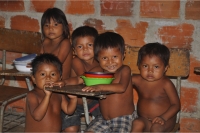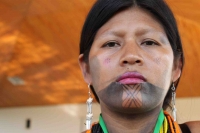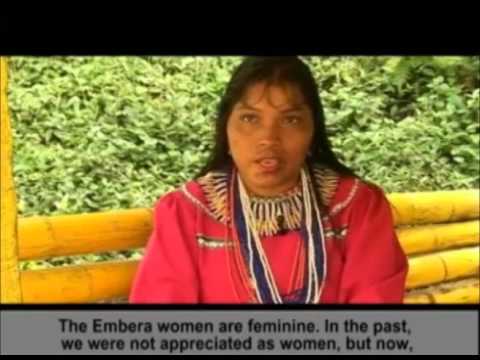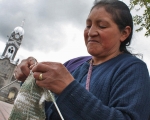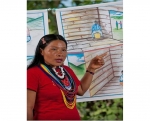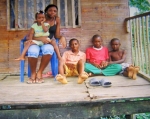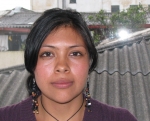

Colombia
The Americas
Colombia
Capital Bogotá
Population 44.9 million
Life Expectancy 72.5
Access to clean water 93%
Adult literacy 92.3%
Under five mortality 21 per 1,000 live births
GDP per head (US$ PPP) $14,900

 This evaluation is a knowledge-generating exercise whose goal is to: 1) Assess the MDG-F's contribution, at national level, to the achievement of the MDGs, the principles of the Paris Declaration and the UN reform initiative to “Deliver as One”; 2) Identify best practices and lessons learned in order to inform future joint programming for development; and 3) Connect local level programme interventions with national level policy-making processes by highlighting successful pilot initiatives with the potential for replication and scale-up.
This evaluation is a knowledge-generating exercise whose goal is to: 1) Assess the MDG-F's contribution, at national level, to the achievement of the MDGs, the principles of the Paris Declaration and the UN reform initiative to “Deliver as One”; 2) Identify best practices and lessons learned in order to inform future joint programming for development; and 3) Connect local level programme interventions with national level policy-making processes by highlighting successful pilot initiatives with the potential for replication and scale-up.
Colombia_Country Final Evaluation.pdf (755 KB)-
Country Fact Sheet
 This Fact Sheet summarizes the key achievements of the Joint Programmes in Colombia.
This Fact Sheet summarizes the key achievements of the Joint Programmes in Colombia.
Colombia Joint Programmes Fact Sheet.pdf (245 KB)
MDG-F Case Study Evaluation
Our Joint Programmes
Indigenous and Afro-Colombian Communities in the Chocó Department promote their Food Security and Nutrition In Colombia’s Chocó region, where the majority of the population is indigenous or Afro-descendant, nearly 80% of people live below the poverty line and infants die at twice the rate elsewhere in the country. This Joint Programme worked to improve the food security and nutrition of pregnant and lactating women and children up to the age of five years from indigenous and Afro-Colombian communities suffering from marginalisation, vulnerability and exclusion. Integration of ecosystems and adaptation to climate change in the Colombian Massif Environmental degradation and climate change have the strongest impact on the poorest sectors of Colombian society. This Joint Programme's aim was to strengthen the coordination and integration of environmental issues within the national development agenda, with a focus on reducing the vulnerability of those groups most affected by climate change. Integral strategy for the prevention and awareness of all forms of gender-based violence More than 40% of Colombian women have suffered physical violence, and two women die every day in Colombia simply because they are women. The Joint Programme supported the Government in its efforts to eradicate gender-based violence through an integral and intersectoral strategy that developed the areas of prevention, detection, recording, awareness and promotion of a political and legal framework in agreement with international guidelines. Strengthening local capacities for peace-building in the Department of Nariño Colombia's Nariño province is a region with a high prevalence of violence, poverty and unmet needs, and a concentration of illicit crops. This Joint Programme targeted municipalities on the Pacific Coast and in the Andean zone of the Department with the goal of promoting peace-building and development by strengthening democratic institutions, fostering civic participation and promoting coexistence and sustainable socio-economic development.STORIES
Publications
 "Proteger la vida nos une" - Conflict prevention in Colombia's Nariño province
"Proteger la vida nos une" - Conflict prevention in Colombia's Nariño provinceProteger-la-vida-nos-une-Conflict-prevention-in-Colombias-Narino-province.pdf (5.61 MB)
